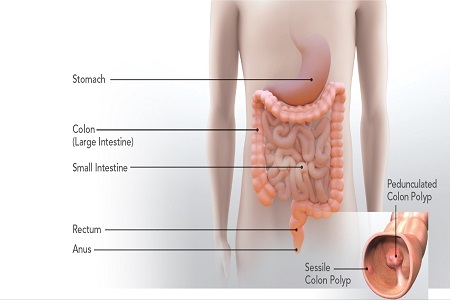Colorectal Cancer Screenings

Screening saves lives
Colorectal cancer is the second leading cause of cancer in the United States, but it doesn’t have to be. If you are 45 or older, getting a colorectal cancer screening test could save your life. Here’s how:
- Colorectal cancer usually starts from precancerous polyps in the colon or rectum. A polyp is a growth that shouldn’t be there.
- Over time, some polyps can turn into cancer.
- Screening tests can find precancerous polyps, so they can be removed before they turn into cancer.
- Screening treatment works best.
What is colorectal cancer?
Colorectal cancer is a cancer that occurs in the colon or rectum. Sometimes it’s called colon cancer. The colon is the large intestine or large bowel. The rectum is the passageway that connects the colon to the anus.
Who gets colorectal cancer?
- Both men and women can get it
- It is most found in people 50 or older
- The risk increases with age
Are you at an increased risk?
- You or a close relative have had colorectal polyps or colorectal cancer
- You have inflammatory bowel disease, Crohn’s disease or ulcerative colitis
- You have a genetic syndrome such as familial adenomatous polyposis (FAP) or hereditary nonpolyposis colorectal cancer
People at increased risk for colorectal cancer may need earlier or more frequent tests than other people. Talk to your doctor about when to begin screening, which test is right for you and how often you should be tested.
Colorectal cancer can start with no symptoms
Precancerous polyps and early-stage colorectal cancer don’t always cause symptoms, especially at first. This means that someone could have polyps or colorectal cancer and not know it. That is why having a screening test is so important.
What are they symptoms?
Some people with colorectal polyps or colorectal cancer do have symptoms. They may include:
- Blood in or on your stool (bowel movement)
- Stomach pain, aches or cramps that don’t go away
- Losing weight and you don’t know why
If you have any of these symptoms, talk to your doctor. They may be caused by something other than cancer. However, the only way to know is to see your doctor.
Types of screening tests
The U.S. Preventative Services Task Force recommends that adults aged 45-75 be screened for colorectal cancer. The decision to be screened after age 75 should be made on an individual basis. If you are age 76-85, ask your doctor if you should be screened.
Several different screening tests can be used to find polyps or colorectal cancer. They include:
Fecal Immunochemical Test (FIT): uses antibodies to detect blood in the stool. You receive a test kit from your health care provider.
How often: Once a year
FIT-DNA Test (or stool DNA test): combines the FIT with a test to detect altered DNA in stool. You collect an entire bowel movement and send it to a lab to be checked for cancer cells.
How often: Once every three years
Flexible Sigmoidoscopy: For this test, the doctor puts a short, thin, flexible, lighted tube into your rectum. The doctor checks for polyps or cancer inside the rectum and lower third of the colon.
How often: Every five years, or every 10 years with a FIT every year
Colonoscopy: Similar to flexible sigmoidoscopy, except the doctor uses a longer, thin, flexible, lighted tube to check for polyps or cancer inside the rectum and the entire colon. During the test, the doctor can find and remove most polyps and some cancers. Colonoscopy is also used as a follow-up test if anything unusual is found during one of the other screening tests.
How often: every 10 years or sooner with a family history of colon cancer
Which test is right for you?
A colonoscopy is the only procedure to remove pre-cancerous polyps and is the gold standard among medical professionals. Talk to your doctor about which test or tests are right for you and how often you should be screened.
How do you schedule one of these tests?
Contact your primary care doctor or provider for a referral and pre-op appointment.
Mankato Clinic Endoscopy CenterThe bottom line
If you’re 45 or older, talk with your doctor about getting screened. For more information, visit cdc.gov/screenforlife or call 1-800-CDC-INFO (1-800-232-4636). For TTY, call 1-888-232-6348